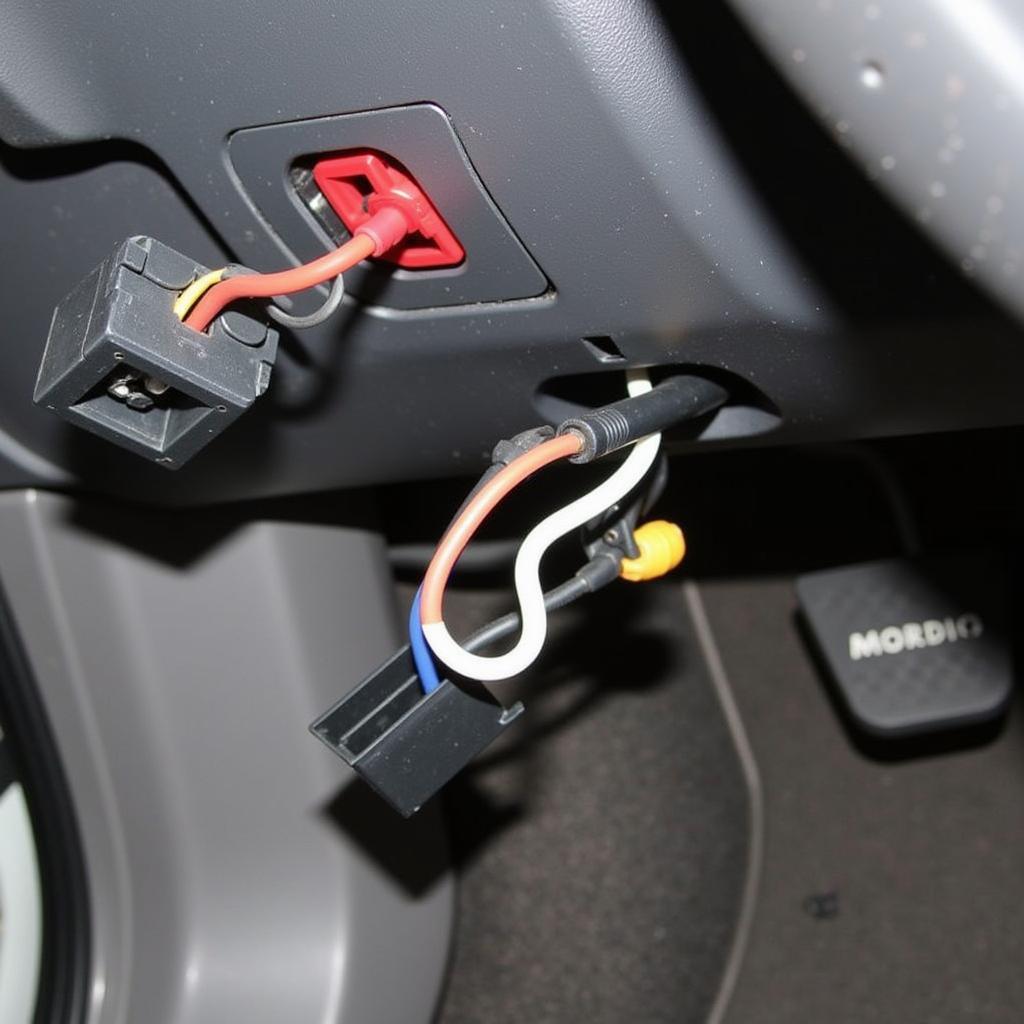It’s incredibly frustrating to walk up to your car, key fob in hand, only to find it won’t unlock. Your heart sinks as you realize it’s not a simple key fob battery issue – your car’s anti-theft system has been triggered. But how often does this happen, and more importantly, what causes these false alarms?
Why Does My Car Alarm Keep Going Off for No Reason?
While designed to deter theft, anti-theft devices can sometimes be a little too sensitive. Here’s a breakdown of common culprits:
- Weak or Dying Car Battery: A low battery voltage can confuse your car’s computer system, potentially triggering the alarm. Think of it as your car’s way of crying for help!
- Faulty Key Fob: If your key fob battery is low or the fob itself is damaged, it may not communicate properly with your car, setting off the alarm.
- Sensitive Shock Sensors: Many cars have shock sensors that trigger the alarm if they detect impact. However, a heavy truck rumbling by or even a loud clap of thunder can sometimes be enough to set them off.
- Faulty Hood Latch Sensor: A malfunctioning hood latch sensor can signal to your car’s system that someone is trying to break in, even when everything is secure.
- Software Glitches: Like all computer systems, your car’s software can experience occasional glitches. These can lead to a range of issues, including a falsely activated anti-theft system.
How Do I Know If My Anti-Theft System Is Malfunctioning?
Here are a few telltale signs:
- Frequent False Alarms: If your car alarm is going off regularly without any apparent reason, it’s a strong indicator of a malfunctioning anti-theft system.
- Engine Immobilization: Does your car crank but refuse to start, even with a perfectly good battery? Your immobilizer, a crucial part of the anti-theft system, might be the culprit.
- Rapid Flashing Hazard Lights: In some vehicles, rapidly flashing hazard lights accompany an activated anti-theft system.
Essential Tools for Diagnosing Car Anti-Theft Systems
- OBD-II Scanner: An essential tool for any car owner, an OBD-II scanner allows you to read your car’s diagnostic trouble codes (DTCs), giving you valuable insight into potential issues with the anti-theft system.
- Digital Multimeter: This versatile tool helps you check battery voltage, continuity in wiring, and sensor functionality.
- Professional Automotive Software: For in-depth diagnostics, programming, and even remote troubleshooting, consider professional-grade automotive software like those offered by Cardiagtech.
Troubleshooting a Falsely Activated Anti-Theft System
1. Check Your Surroundings: Before diving into diagnostics, rule out any obvious external triggers. Is there a construction site nearby? Did a loud vehicle just pass?
2. Check Your Key Fob Battery: Replacing the battery in your key fob is a quick and easy fix that often solves the problem.
3. Inspect Your Car Battery: If your car battery is weak or dead, jump-start your vehicle and have the battery tested by a professional.
4. Check for Loose Connections: Open the hood and visually inspect the battery terminals and any visible wiring harnesses for looseness or corrosion.
5. Utilize Your OBD-II Scanner: Connect the scanner to your car’s OBD-II port and read any stored DTCs. Look up the code definitions online or in a repair manual to pinpoint the issue.
FAQs: Anti-Theft Systems and False Alarms
Q: Can extreme temperatures trigger a false alarm?
A: Extreme heat or cold can affect the sensitivity of your car’s sensors and potentially lead to false alarms.
Q: How much does it cost to fix a car anti-theft system?
A: Costs vary depending on the issue’s root cause. A simple key fob battery replacement might cost a few dollars, while a faulty sensor or ECU could require more extensive repairs.
Q: Can aftermarket car alarms cause more false alarms?
A: While aftermarket alarms can provide enhanced security, improper installation can lead to increased sensitivity and a higher likelihood of false alarms.
Q: Can I disable my car alarm temporarily?
A: It’s generally not recommended to disable your car alarm completely. However, if you need to temporarily bypass the system, consult your owner’s manual for instructions specific to your vehicle model.
Need help diagnosing and resolving your car’s anti-theft system issues? Contact CARDIAGTECH today for professional remote diagnostics and programming solutions.

